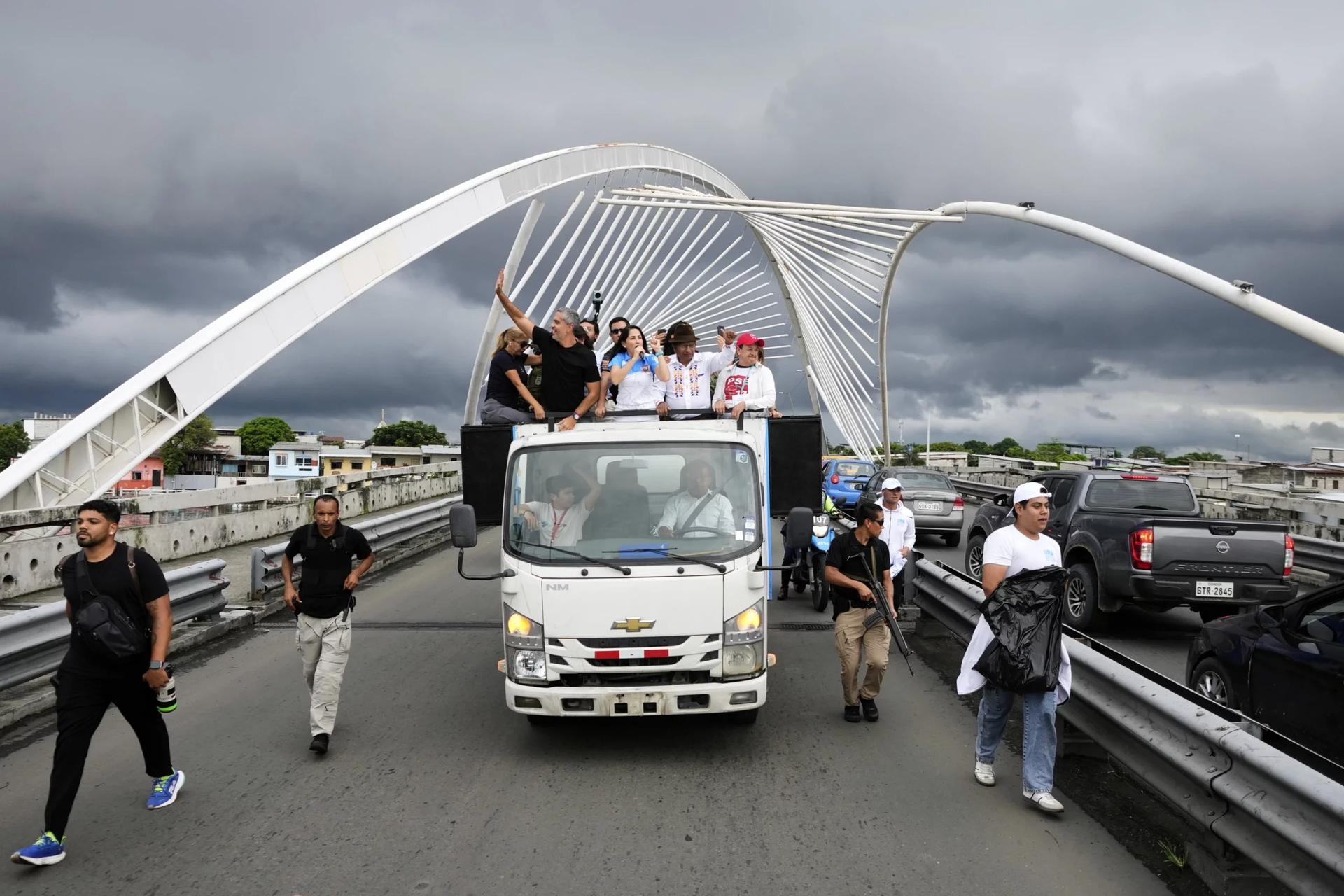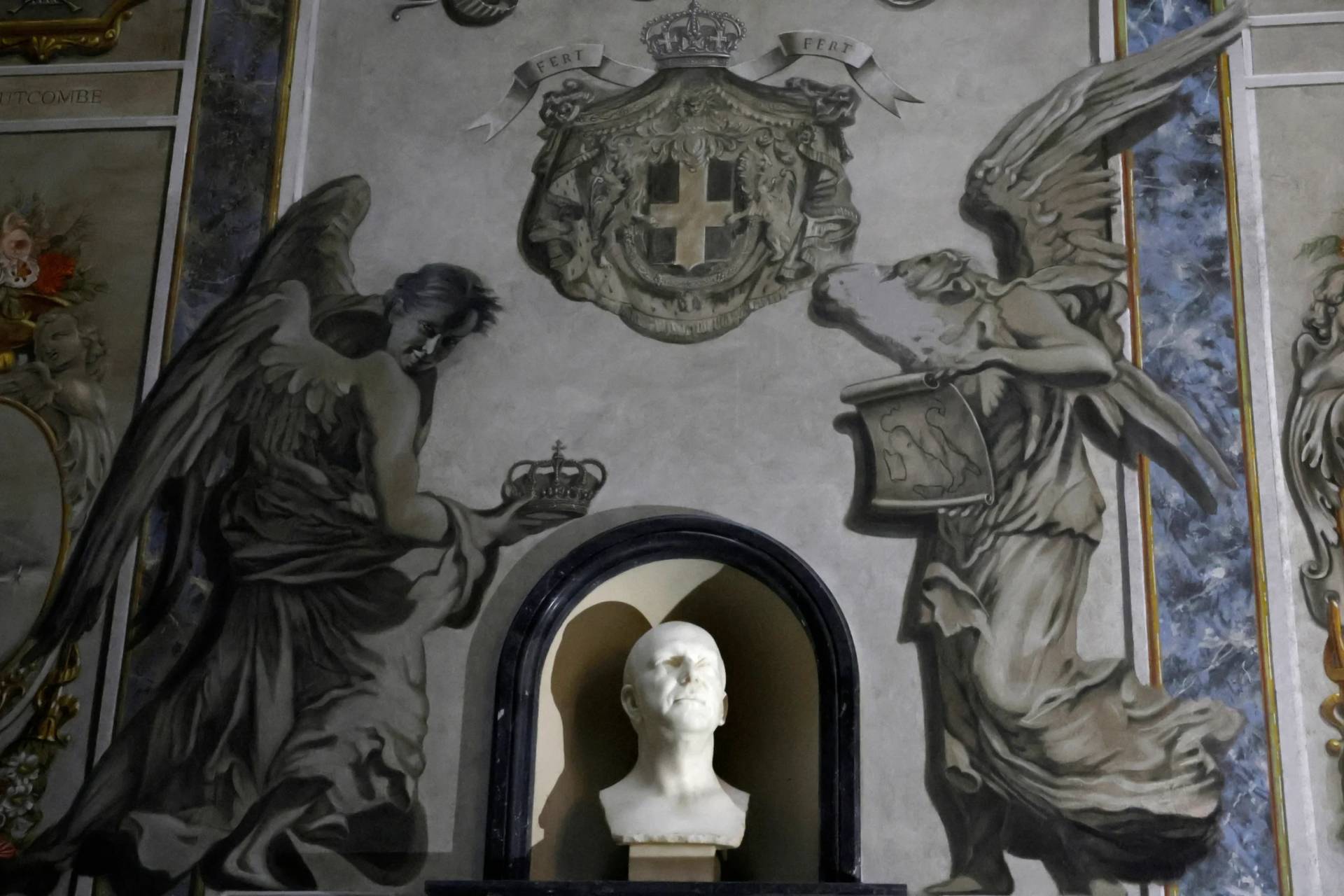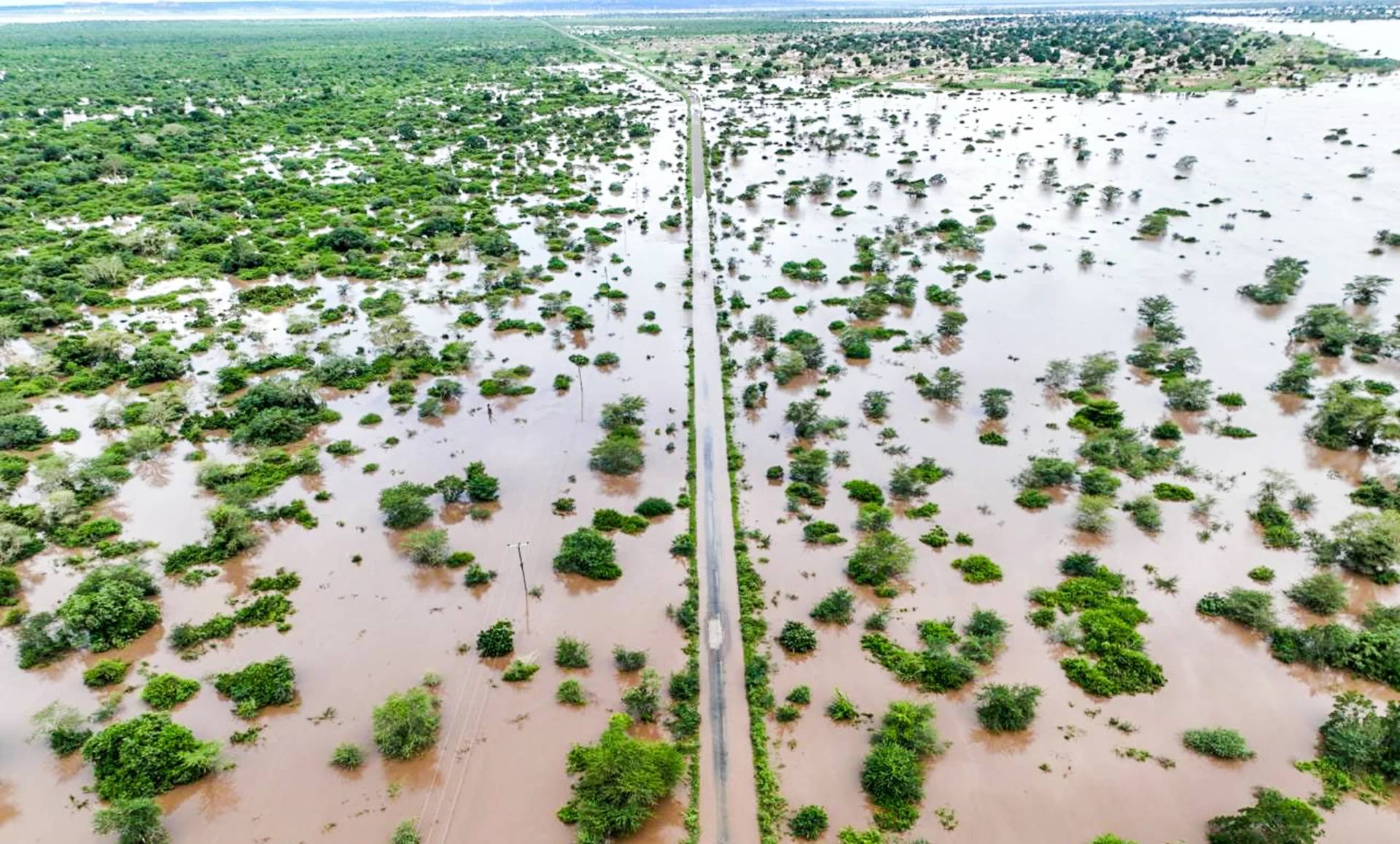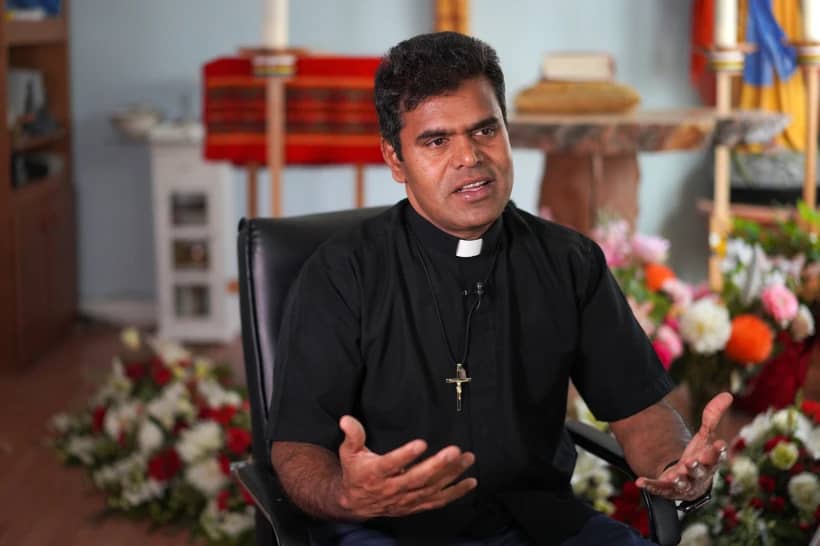SÃO PAULO, Brazil – As the people of Ecuador prepare for the next round of the presidential elections on Apr. 13, the dispute between the incumbent, right-wing President Daniel Noboa, and his left-winger opponent Luisa González, appears to be fiercer and fiercer, with what looks like a technical draw between them.
The situation reflects the political polarization in the Andean country, which has also attained the Catholic Church. The episcopate has been working to reaffirm its values – but in a politically charged context, it even had to deny on one occasion that the Church has taken a side in a dispute between parties.
Beyond the current election, the Church has been worried about the deterioration of quality of life and security for Ecuadorians, and few people think that the new president will be able to really tackle such issues.
Noboa, a member of one of the country’s richest families, had a rather short administration, given that he was elected to complete the term of former President Guillermo Lasso, who left the presidency before an impeachment process. Noboa took office in November of 2023.
He soon had to put into practice his plan to reduce criminality in Ecuador, given that an unprecedented wave of violence terrorized the people starting in January of 2024. Noboa militarized the prisons and also the streets, pledging to rule with a strong hand.
While he managed to reduce violence rates, the number of killings continued to be high. At the same time, his policies were condemned by many in the Church and he was accused by members of the Prison Pastoral Ministry, for instance, of criminally disrespecting the prisoners’ human rights.
He declared to be a big fan of President Donald Trump and managed to have an encounter with him on Mar. 29 in Mar-a-Lago.
González represents Correísmo, the political movement headed by former President Rafael Correa, who stepped down in 2017 and moved to Brussels. In 2020, he was convicted of bribery and sentenced in absentia to eight years in prison. In 2022, Belgium officially granted him political asylum.
A lawyer and formerly a congresswoman, González had several offices during Correa’s tenures. She pledged to resume relations with Venezuela and Mexico. Mexican President Claudia Sheinbaum publicly supported her.
On Mar. 13, the Ecuadorian episcopate issued a statement in which it explained that a Traditionalist group named Tradicción y Acción (Tradition and Action), which was seen on a video campaigning against socialism and González, is not directly related to Ecuador’s Church.
The video was recorded in the city of Loja and shows a group of members of Tradicción y Acción – most of them young men, but also a few teenagers – carrying out a demonstration against Correísmo, chanting slogans and handing out leaflets to passers-by.
The person who recorded it is heard saying that the Catholic Church was directly campaigning for Noboa. The clip was later shared by Rafael Correa on social media. In his post, he explains that “it’s not the Church, it’s an ultraconservative group named Tradition, Family and Action, which was considered an extinguished group but has lately appeared in Ecuador.” His post went viral.
The episcopate’s statement affirmed that Tradicción y Acción is a civic organization and doesn’t have direct relations with the Church. The letter reaffirmed that the episcopate has a commitment to not engage in party politics.
Tradicción y Acción is indeed connected to the Tradition, Family, and Property movement, founded in Brazil in the 1960s by Catholic leader Plinio Corrêa de Oliveira.
On Apr. 7, the bishops released a new declaration calling on the people to recover their sense of fraternity in order to overcome polarization.
“As pastors of the Catholic Church, we call all democratic forces, no matter what the result is, to do the best they can: their will and their intelligence in the service of Ecuador, overcoming all forms of violence and polarization,” the document read.
The letter emphasizes the numerous problems Ecuador has been facing, especially “poverty, corruption and impunity”, all of them aggravated by the continuous violence generated by mafia-like criminal organizations.
According to Cardenal Luis Gerardo Cabrera, Archbishop of Guayaquil, who heads the Bishops’ Conference, the growing divide in the Ecuadorian society doesn’t help the people to unite and to deal with their real needs.
“For us, themes and values like justice, freedom, truth and dialogue have to be continually incentivized if we want to change the reality we face today,” Cabrera told Crux.
He recalled that more than 120 among Guayaquil’s 160 parishes are located in very poor neighborhoods, in which people don’t even have enough to eat.
“We always mention the levels that should be dealt with in order to address those social problems. The first one is prevention. We have to create conditions for the access of the youth to education, healthcare and jobs,” the cardinal said.
The other level mentioned by him is rehabilitation. Cabrera said it’s virtually impossible to really change a person’s mind in prisons “with 10,000 detainees, not to mention the mega prisons.”
“How that person could be restored to his or her family and to his or her job, if he or she is not prepared yet?” Cabrera asked.
“We’ll keep supporting the idea of preventing violence and crime,” he added.
Bishop Geovanni Paz of Latacunga confirmed to Crux that political polarization has been growing stronger during the presidential race. At the same time, violent groups gain more and more space and wage a domestic war.
“That’s a very complicated scenario. But we keep trying to look at it with hopes that in the future we will have a better nation,” he said.
He said corruption is widespread and the people should unite against it, something that could be helpful to really improve Ecuadorians’ life quality.
“People need to remember that the government doesn’t give us anything. People survive because they work. We need to unite all the people in a common cause, the cause of the common good,” Paz said.















